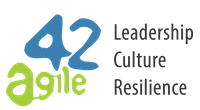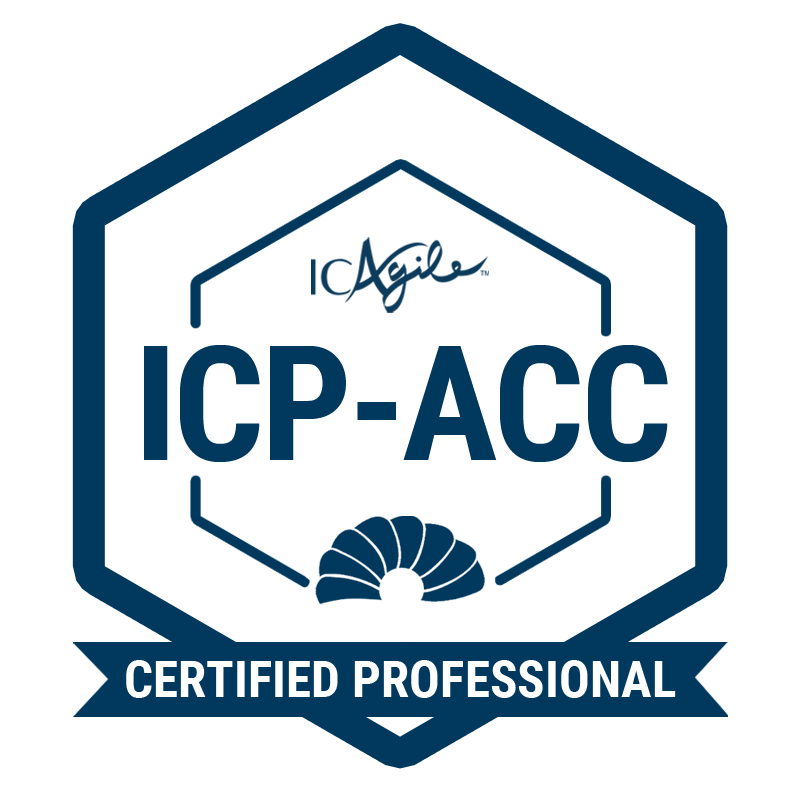Kanban Systems Improvement (KMP II)
The basics of Kanban have taken hold and are already being used in daily operations. However, you have a feeling that you could get more out of it. This is most certainly the case, and agile42 will show you how in Kanban Systems Improvement.


- Duration: 16h
- Delivery: Remote / Face-to-face
- Certifications:
- KMP II certificate (Kanban University)
- KMP I plus KMP II will earn you the Kanban Management Professional (KMP) credential
- PDU & Scrum Alliance SEUs: 14 SEUs / PDUs
Overview
In the Kanban Systems Improvement training, we work on scaling, prioritizing, and forecasting—those themes which need a system that has been in place for a while and has somewhat matured. This training focuses solely on improving your system through the exchange of ideas with other Kanban practitioners. After attending this training, you will uncover the potential still hidden in your system, even if you are currently using Kanban successfully.
Kanban Systems Improvement is training for advanced practitioners who are currently using a Kanban system and wish to develop it further. You will learn about the techniques which can be used to achieve the full potential of your Kanban system.
This course is the second of two courses required to achieve the Kanban Management Professional (KMP) accreditation.
agile42 and Kanban University have been working together since 2017, spreading Kanban around the world. We thank Gaetano Mazzanti, Mike Freislich, and Rochelle Roos for all your contributions to Kanban University and community! #YesWeKanban
Kanban University
Learning objectives

- Managing Evolutionary Change
- Dealing with Resistance to Change
- Feedback Loops and Continuous Learning
- Implementing and Scaling out Kanban
- Balancing Demand and Capability
- Optimizing Flow and Predictability
After this course, you will be able to:
- Improve your Kanban system
- Accurately predict when your work will be finished
- Make prioritization decisions based on economic factors instead of hunches
- Scale your Kanban system to generate more value for your company
- Implement the most important advanced flow concepts in your daily work
Training topics
- Proto-Kanban
- Portfolio Kanban (Discovery and Delivery Kanban)
- Commitment Types
- Cost of Delay
- Scaling Out Kanban
- Throughput Forecasting Simulation
- Scheduling
- Advanced Metrics
- Statik in depth
- Kanban Meetings and Roles – the 7 cadences
- Replenishment Meeting
- Kanban Meeting
- Service Planning
- Service Delivery Review
- Risk Review
- Operation Review
- Strategy Review
Target audience
Kanban Practitioners, Project or Program Managers, Business Analysts, Line and Middle Managers (both within and outside of IT), Management Coaches / Trainers, and Process Improvement Coaches interested in maximizing the effectiveness of their Kanban adoptions.
Prerequisites
- KMP I attendance
- Participants are expected to have read Kanban by David J Anderson or Kanban from the Inside by Mike Burrows
- Some experience using a Kanban system
In the case of a remote training
- We will use Zoom as a video conferencing platform.
- We will use Slack as an additional messaging channel.
- We will use Miro as an online whiteboard for digital collaboration.
Why agile42?
- Experience: Over the years, agile42 has delivered Scrum & Agile training to thousands of professionals worldwide. Our instructors have decades of experience using and coaching Scrum in hundreds of organizations large and small.
- Excellent ratings: We consistently receive excellent ratings from our participants.
- Techniques: In all of our classes, we use techniques from Accelerated Learning and in particular principles and concepts from Training from the Back of the Room.
- Engaging: Our courses are highly interactive and fun – not a PowerPoint assault and our participants stay engaged throughout the class, learn by doing, and have fun along the way. When learners talk and teach, they learn. -Sharon Bowman
- Practical and Memorable: Participants learn through hands-on exercises – creating high knowledge retention.
- Sustainable: We are contributing to a greener planet by decreasing our carbon footprint by not having people travel to the venue and less paper usage in terms of flipcharts and post-it notes.






